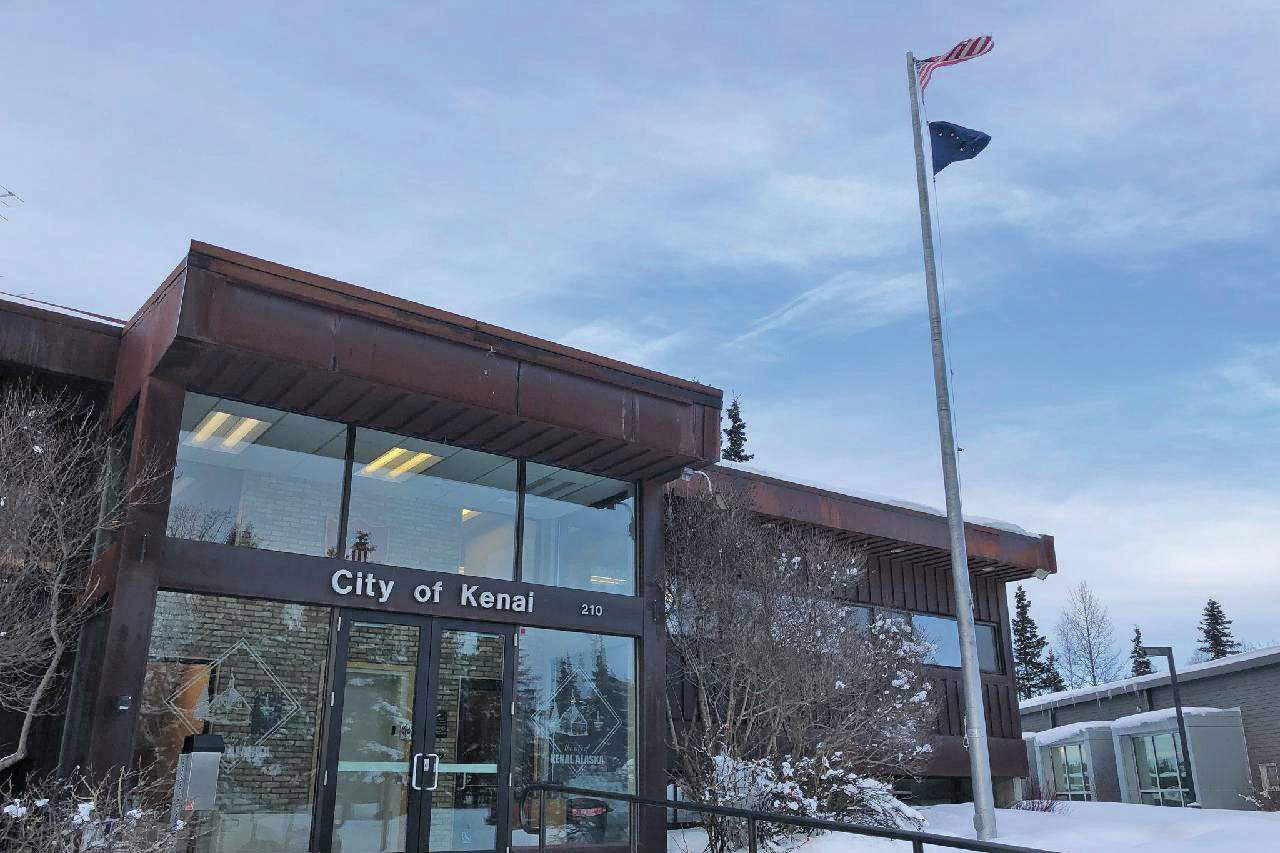The Kenai City Council voted Wednesday to extend Kenai’s COVID-19 disaster declaration until June 30 as a way to make sure the city remains eligible for federal COVID relief funds, some of which have required a disaster declaration to be in effect.
The city’s disaster declaration was first issued by Kenai City Manager Paul Ostrander on March 18, 2020 and has since been extended seven times. Among other things, the declaration gives city administration more flexibility in how they are able to respond to the COVID-19 pandemic, provides temporary leave for city employees with COVID-related illness and continues a moratorium on the shutoff of city utilities.
Kenai resident April Orth, who testified before the council Wednesday, asked the council not to extend the declaration because it would perpetuate fear in the community.
“I am adamantly opposed to this,” Orth said. “Everyone I know is completely finished and the people that aren’t finished are afraid. They look at you as authority figures making these decisions and they believe you when you extend this emergency order — it causes fear.”
Those in favor of extending the declaration said it may make the process of accepting federal funds easier and could be rescinded at a later date, while those in opposition said the council could always reissue the declaration at a later date if it was necessary to receive funds.
Also extended with the declaration is the city’s moratorium on penalty and interest for water and sewer accounts, as well as utility shutoffs. Per legislation approved by the city council last month, residents who have taken advantage of the city’s utility relief program will have 60 days from the expiration of the city’s disaster declaration to enter into a payment plan with the city to pay off their balance.
Kenai City Manager Paul Ostrander said Wednesday that he almost did not bring the extension before the council because he did not think they would be interested in extending it, however, it is unclear whether or not the city will need to have a declaration in place in order to be eligible for additional COVID-related funding. Eligibility for relief funding has consistently been cited as a reason for extending disaster declarations by municipalities across the borough.
“At this point, I don’t think it jeopardizes any federal funding but further guidance is coming, potentially additional stimulus funding, and I could not tell you with certainty that some sort of declaration wouldn’t be necessary for that, which is why I provided it for your consideration tonight,” Ostrander said.
Kenai City Attorney Scott Bloom said he thought it would be “very difficult” for the city to enact a new declaration if they allowed the current one to lapse. Council member Jim Glendening said that the schedule of the council’s meetings would give city administration time to declare another disaster declaration if they needed to and that he would not support extending the declaration until the end of June.
Council member Victoria Askin said she likes to keep her options open and that in supporting the extension she would not be acting out of fear.
“I would hate for it to look like we waited and then suddenly ‘Oh we might get money, so now we’re going to declare an emergency again,’ if that might not jeopardize our changes,” Askin said. “It’s not out of fear; I’ll be supporting this.”
Kenai Mayor Brian Gabriel said he would also support the extension, partially because doing so would give residents the whole summer to start saving wages in preparation for the end of water and sewer relief. Even though the declaration was extended to the end of June, the council could vote to rescind the declaration prior to then if they get clarity on whether or not they need a declaration in place to receive additional funds.
“I don’t see a downside at this point, or less of a downside I should say, to go ahead and approve it,” Gabriel said.
Council member Teea Winger said during a March meeting of the Kenai City Council that she would vote in favor of extending the declaration until the end of the school year, but that she would not do so beyond then.
“I don’t support this,” Winger said. “It’s time to definitely get out of this recovery phase and get into the resilience phase. I believe that it does send a little bit of a false message, saying that an emergency order is needed on the health end of things when we’ve seen the COVID numbers lessen.”
The council ultimately voted 5-2 in favor of extending the declaration until June 30, with council members Teea Winger and Jim Glendening voting in opposition.
The council’s Wednesday night meeting can be viewed on the city’s YouTube channel.
Reach reporter Ashlyn O’Hara at ashlyn.ohara@peninsulaclarion.com.

